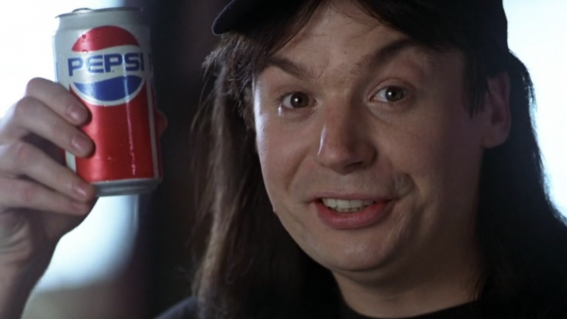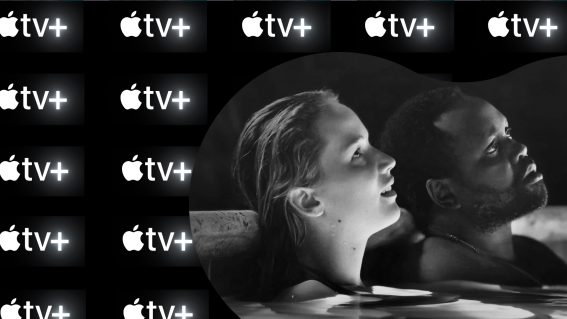Retrospective: Office Space’s soul-destroying workplace satire still applies now
“While it’s funny, there’s genuine anger too. I for one was thinking ‘yeah, get that printer!'”
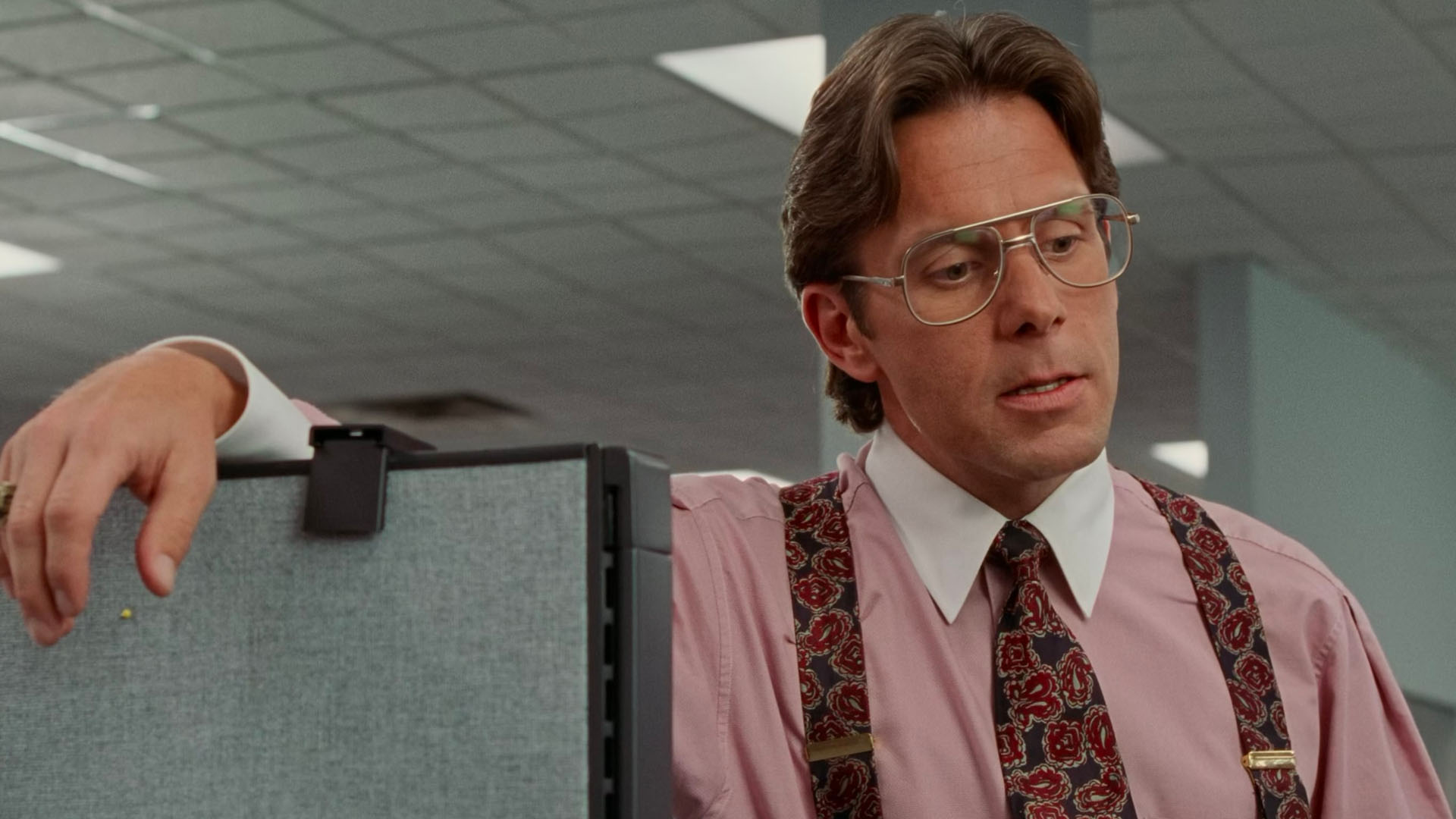
Twenty-plus years after its release, Tony Stamp takes a fresh look at Mike Judge’s 1999 comedy Office Space – its enduring appeal lies in skewering sadly (and still) all-too-recognisable aspects of office workplaces.
During the Trump presidency, a common catch-cry sprang up on social media. Following every new policy or public appearance by the man, people would cite Mike Judge’s Idiocracy as a benchmark for how things were going, and where they were heading.
That film portrays a future where the average IQ has dropped precipitously, and does feel prescient in hindsight. But it’s the director’s second film (after Beavis and Butt-Head Do America) that has stood the test of time more easily, in that its portrayal of soul-destroying office life was accurate then, and still is now.
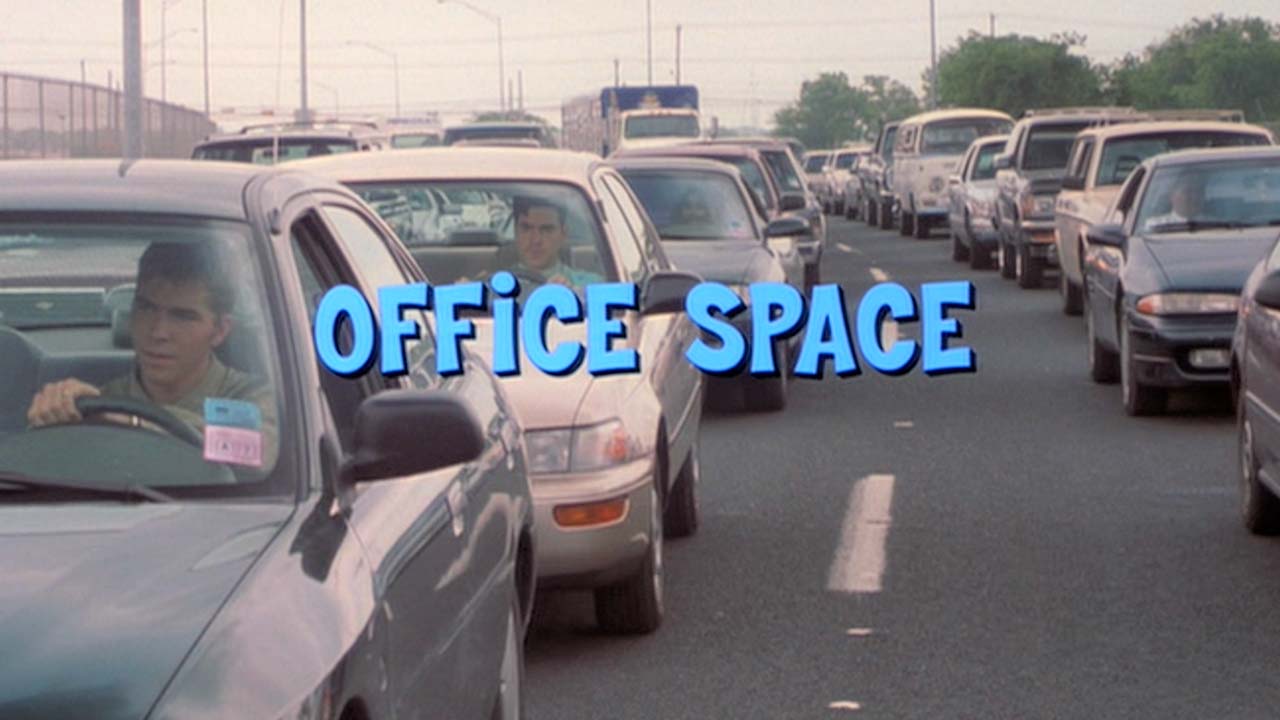
We meet the amusingly-named Peter Gibbons (Ron Livingston) stuck in traffic. He and his colleagues Samir and Michael are sitting in the same jam, each edging forward one car at a time. It’s a neat visual metaphor for the drudgery of corporate life, and allows Judge to introduce his characters in a rather televisual style. Peter’s boss Bill and office weirdo Milton also feature in the opening-credits montage.
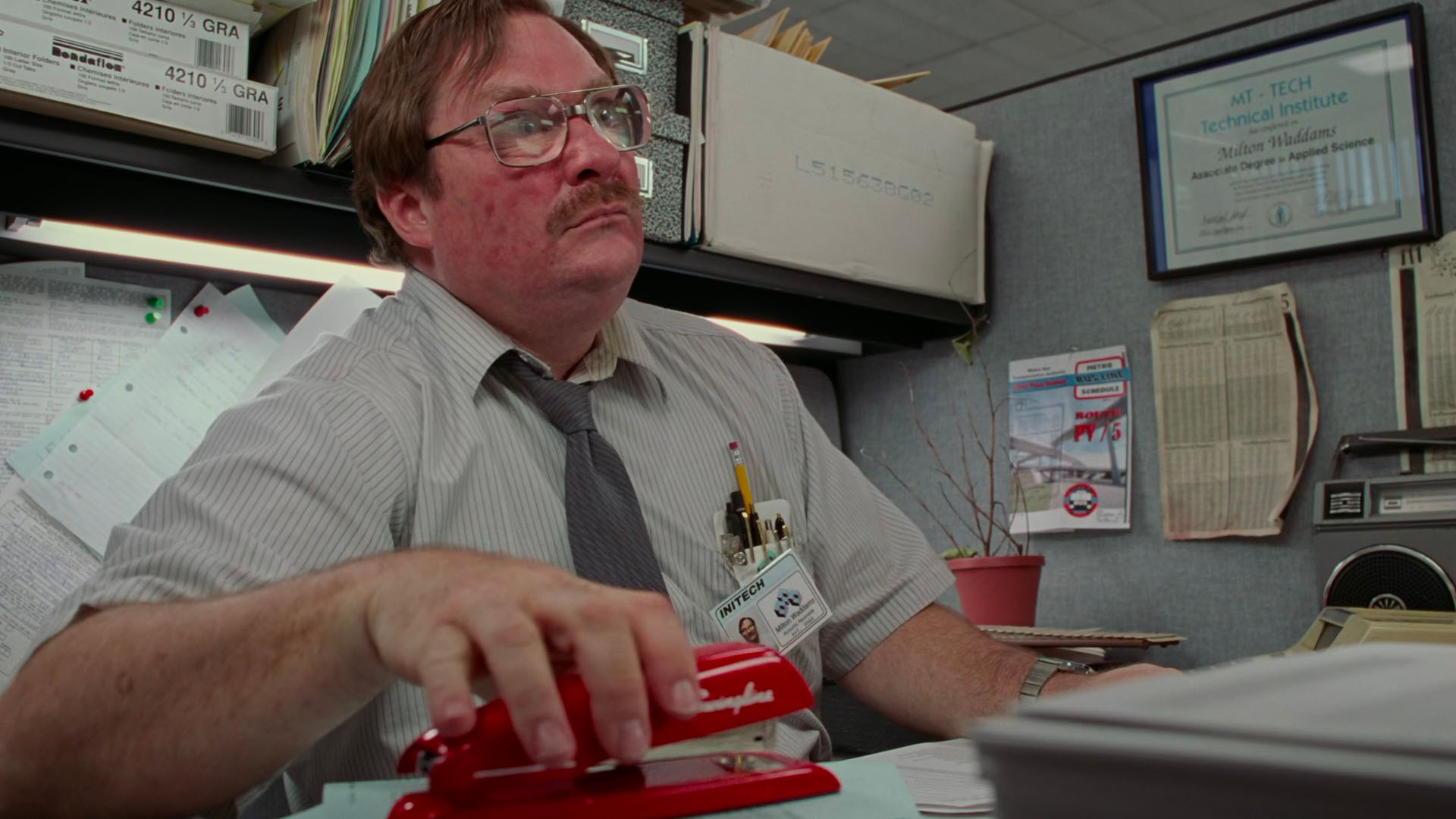
It’s Milton who was the jumping-off point for the movie. He originated as the title character in a series of early nineties cartoons, which played on Saturday Night Live and MTV’s Liquid Television. Crudely animated, they feature Milton as a put-upon office drone, mumbling his way through a series of bureaucratic humiliations, usually at the hands of his boss Bill. Just like in the movie, these end with Milton muttering some act of violence under his breath.
Judge himself voiced all the parts on Milton, but for the movie cast Stephen Root, an actor who continues to turn in fantastic performances—he just popped up in The Tragedy of Macbeth, appears in everything from The Empty Man to Selma, and turned in a chilling support role in Get Out.
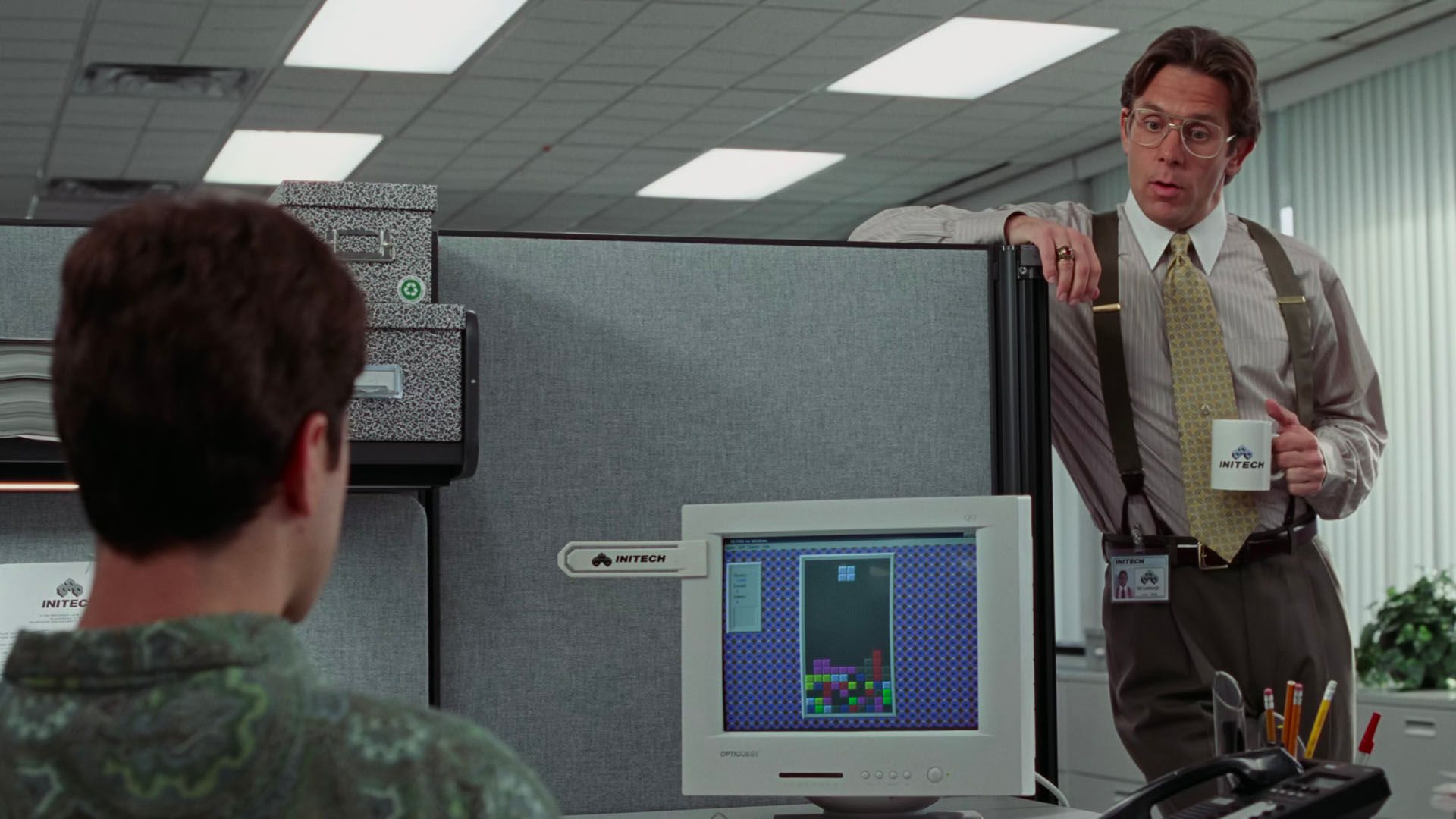
His boss Bill Lumbergh is played by Gary Cole, another familiar face—in recent years he showed up as a similarly soulless figure on the TV show Veep. His portrayal might be the one that stayed with people the most, because it was so recognisable. Bill never appears without a coffee mug in hand, and speaks exclusively in passive-aggressive vernacular like “I’m going to need you to” and “mm-kay?”, all too familiar to anyone who’s suffered through semi-competent middle management.
The aspects of office life that are skewered are still all too recognisable. A “Hawaiian shirt day” is announced by Lumbergh to a stone-faced assembly. The company brings in “efficiency experts” as consultants when they want to thin the staff. A banner is unfurled with a new office slogan: “Is this good for the company?”, a joke which must sail over the heads of certain corporate types.
One of the most cutting lines comes early on: when faced with the possibility of getting fired, one guy is horrified at the thought of going to the unemployment office to “stand in line with the scumbags”. He simply can’t connect his situation with theirs.
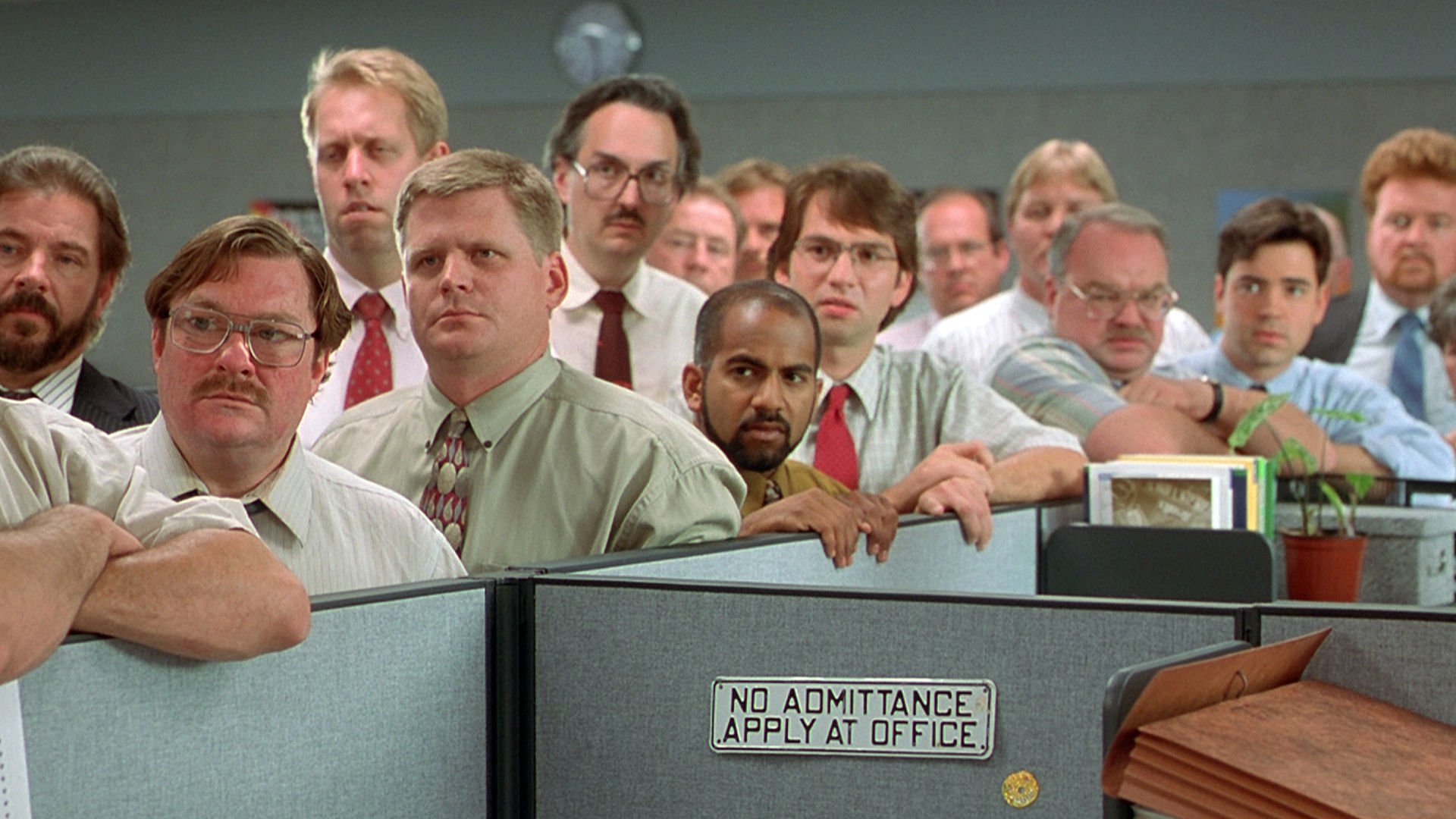
Peter, Samir and Michael are the core trio of the movie, a group that reminded me of Enid and Rebecca in Ghost World—they’re self-aware, and surrounded by people who are not. It’s a familiar comedic set-up, but in Office Space there’s a certain amount of sympathy for the supporting cast of fools—they’re all victims of a larger societal problem, where discontentment and depression are papered over with vacuous phrases like “someone’s got a case of the Mondays”.
Judge’s targets are specific, drawn from his background working an underpaid job in Silicon Valley and his observation that “every city now has these identical office parks with identical adjoining chain restaurants”. Here that’s Chotchkie’s, where Peter’s love interest Joanna works as a waitress. She’s played by Jennifer Aniston (around five years into her run on Friends), cast because the studio wanted some star power on board.
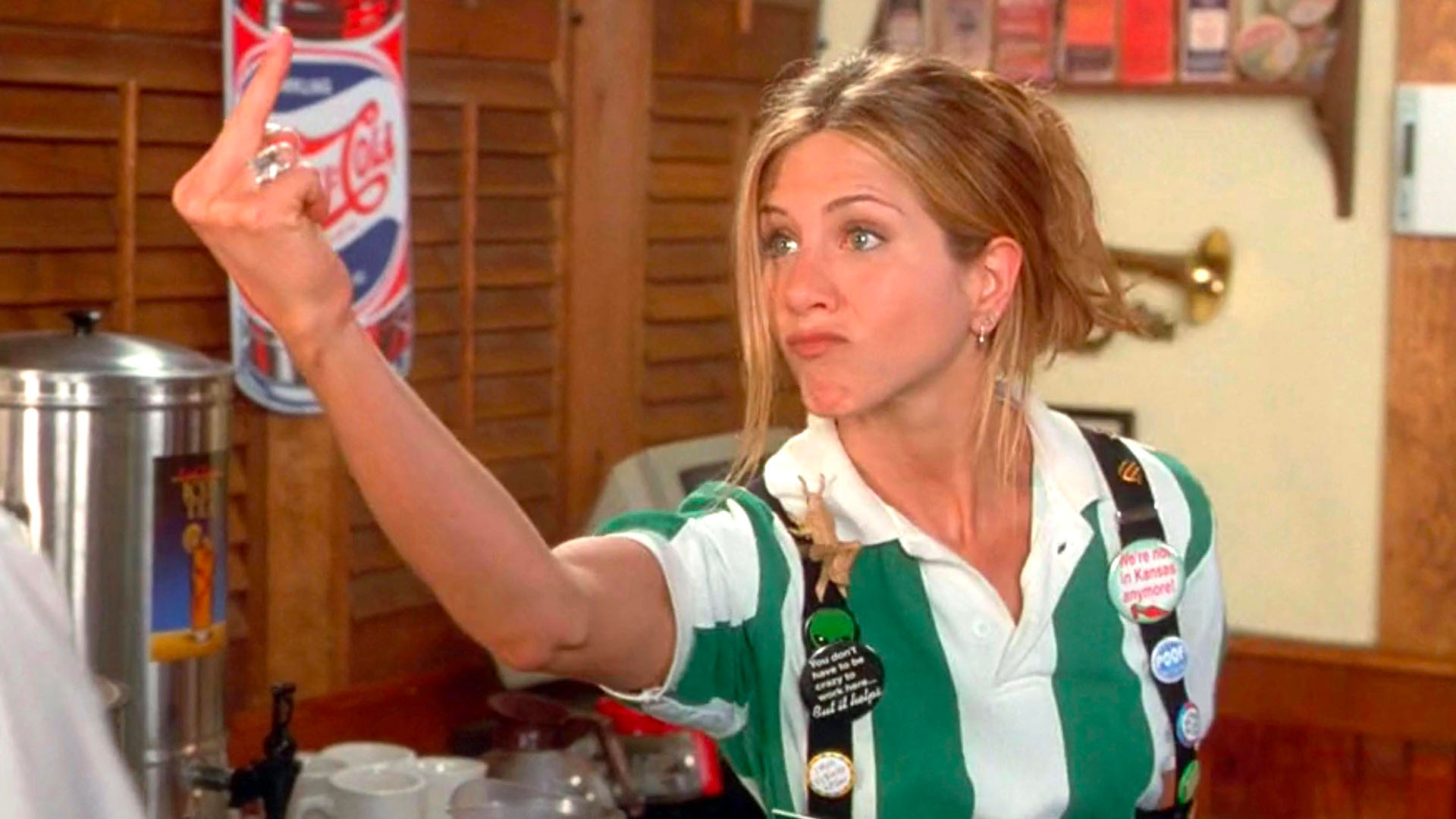
Her role was expanded to include her own workplace frustrations, and it makes the movie so much better—Joanna’s exchanges with a boss who refuses to give a straight answer (played by Judge himself), will also be familiar to many, and they make it clear the film is satirising an entire culture, not one specific office.
If you’ve seen Mike Judge’s sitcom Silicon Valley, you’ll know he finds hip hop music juxtaposed with nerdy white guys super funny, and that gets a good airing here. One of the movie’s most enduring jokes is that Michael (played by David Herman) has the surname Bolton, meaning he shares a name with a certain smooth-voiced singer whose star was already fading in ’99.
It’s a decision by the character’s parents that seems to have steered him away from anything resembling crooning in favour of hard-edged rap. This makes for an excellent soundtrack, but does mean the N-word gets a regular outing in a movie that only features one Black person, in a single scene.
Similarly dusty: Aniston’s character is, for all intents and purposes, slut-shamed by Peter. The film makes sure we know he’s wrong to do so, but it’s still poorly-judged.
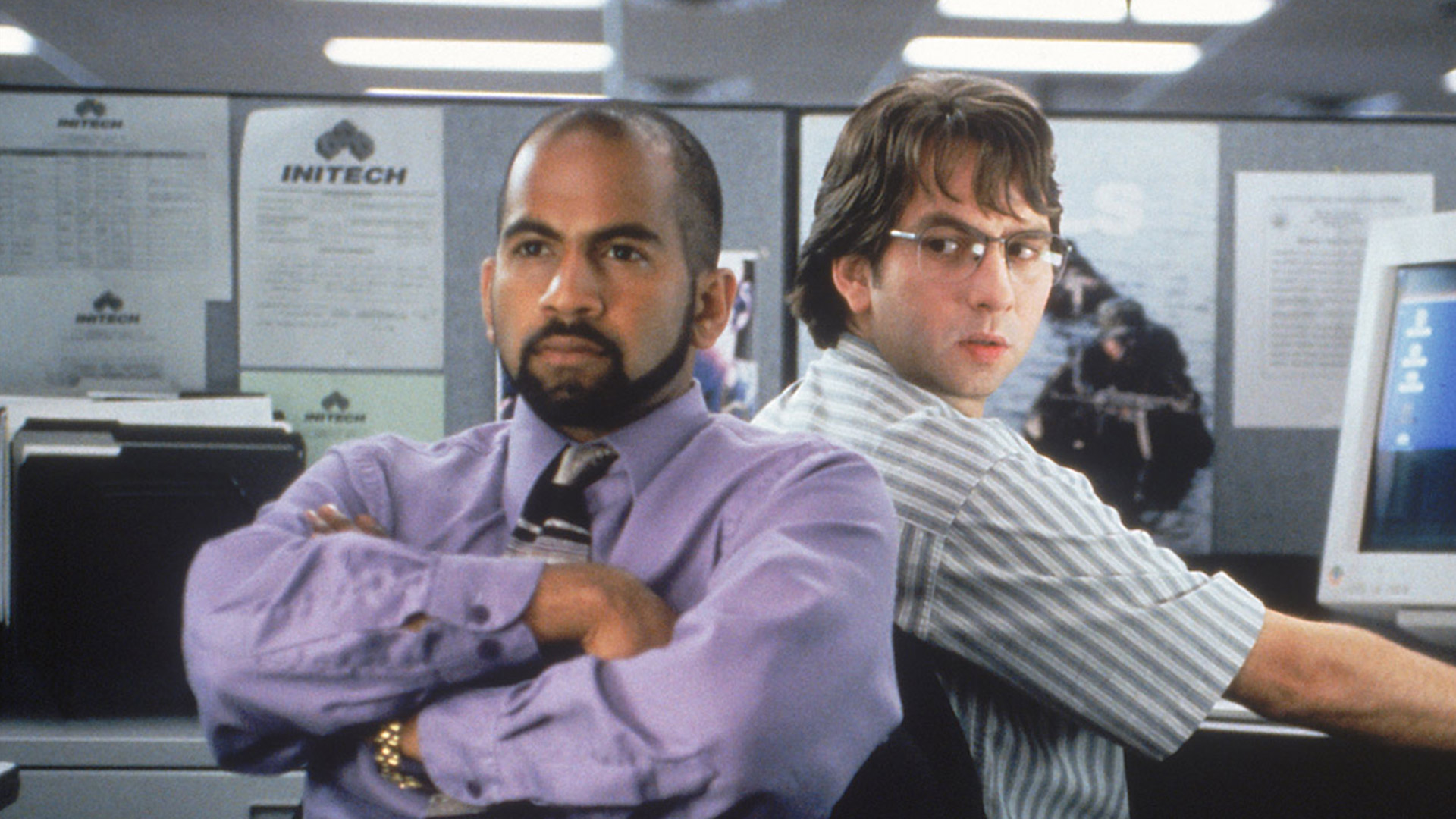
On the other hand, it was interesting to see the movie’s attitude to its one Arab character Samir. Ajay Naidu, the actor who played him, is actually Indian American, and there’s a recurring joke about people not pronouncing his surname correctly, and neither of those things is ideal. But it’s notable that the film doesn’t ‘other’ him aside from that. There’s a brief reference to his Muslim faith that goes unremarked upon, at which point I mentally clocked this as a 1999 film—it’s hard to imagine this character getting the green light a few years later post 9/11.
Comedic business aside, I think Office Space has endured because people empathise with Peter. When asked by his neighbour what he would do if he was a millionaire he responds “I would do nothing”, and I think a lot of us secretly agree.
His big revelation happens while he’s being hypnotised and the hypnotist drops dead, after which he sails through life in a kind of stoned/zen state, not worrying about anything. We later learn it wasn’t the procedure that changed him, but seeing a man die. He realised every day could be his last. It’s an evergreen sentiment.
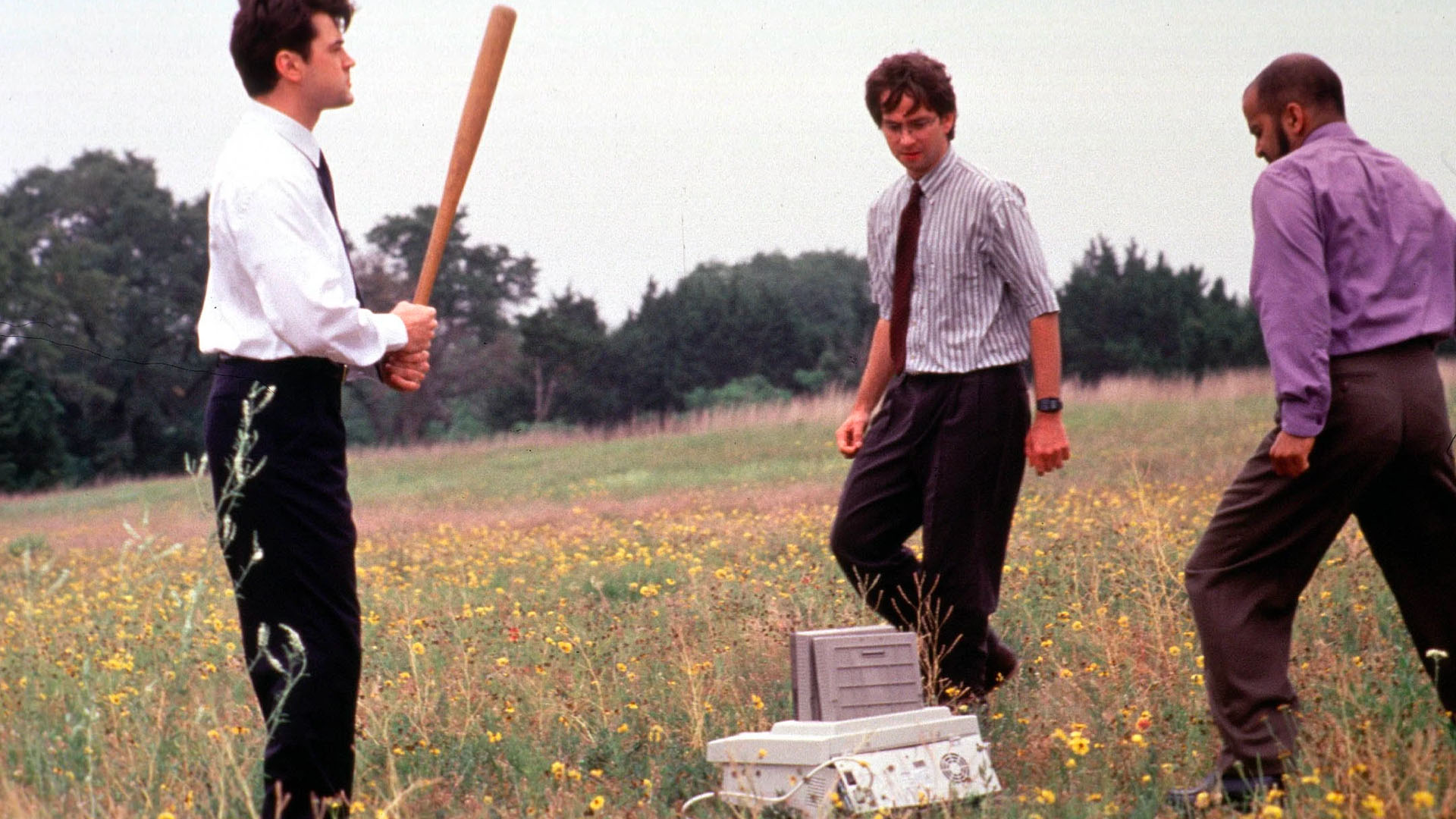
I think the film’s signature scene, where the guys beat the shit out of a printer, has lingered in the public consciousness for similar reasons. We’ve all been mad at a printer at one point or another, and it’s a safe bet it stemmed from simmering job resentment. There’s a lot of wish fulfilment happening in the scene, and while it’s funny, there’s genuine anger too. I for one was thinking “yeah, get that printer!”
An abrupt cut takes us from the guys raging in a field to them partying in an apartment, satisfied at striking one small blow for the little guy. It’s another funny moment, but like a lot of this film’s jokes, it’s very well-earned.









